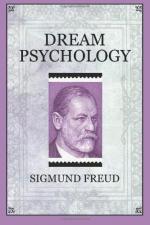On reviewing the dreams which we have at our disposal for answering this question, we are at once moved to add as a fourth source of the dream-wish the actual wish incitements arising during the night, such as thirst and sexual desire. It then becomes evident that the source of the dream-wish does not affect its capacity to incite a dream. That a wish suppressed during the day asserts itself in the dream can be shown by a great many examples. I shall mention a very simple example of this class. A somewhat sarcastic young lady, whose younger friend has become engaged to be married, is asked throughout the day by her acquaintances whether she knows and what she thinks of the fiance. She answers with unqualified praise, thereby silencing her own judgment, as she would prefer to tell the truth, namely, that he is an ordinary person. The following night she dreams that the same question is put to her, and that she replies with the formula: “In case of subsequent orders it will suffice to mention the number.” Finally, we have learned from numerous analyses that the wish in all dreams that have been subject to distortion has been derived from the unconscious, and has been unable to come to perception in the waking state. Thus it would appear that all wishes are of the same value and force for the dream formation.
I am at present unable to prove that the state of affairs is really different, but I am strongly inclined to assume a more stringent determination of the dream-wish. Children’s dreams leave no doubt that an unfulfilled wish of the day may be the instigator of the dream. But we must not forget that it is, after all, the wish of a child, that it is a wish-feeling of infantile strength only. I have a strong doubt whether an unfulfilled wish from the day would suffice to create a dream in an adult. It would rather seem that as we learn to control our impulses by intellectual activity, we more and more reject as vain the formation or retention of such intense wishes as are natural to childhood. In this, indeed, there may be individual variations; some retain the infantile type of psychic processes longer than others. The differences are here the same as those found in the gradual decline of the originally distinct visual imagination.
In general, however, I am of the opinion that unfulfilled wishes of the day are insufficient to produce a dream in adults. I readily admit that the wish instigators originating in conscious like contribute towards the incitement of dreams, but that is probably all. The dream would not originate if the foreconscious wish were not reinforced from another source.




